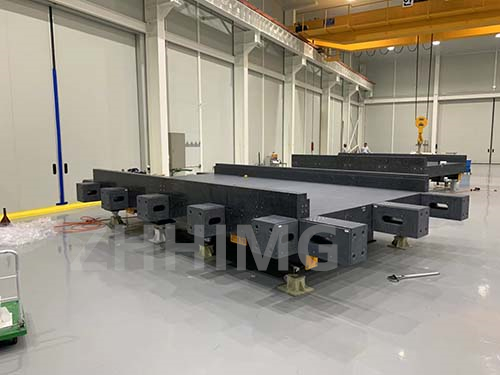In the rapidly evolving electronics industry, the manufacture of printed circuit boards (PCBs) is a critical process that requires precision and reliability. Granite machine blocks are one of the unsung heroes of the industry, playing a key role in ensuring accuracy and quality in PCB production.
Granite machine bases are renowned for their exceptional stability and rigidity. Unlike traditional materials, granite is not susceptible to thermal expansion and vibration, which can severely affect the precision of the machining process. In PCB manufacturing, tolerances can be as small as a few microns, and even the slightest deviation can lead to defects, increased costs and delays. By using a granite machine base, manufacturers can maintain a stable platform, minimizing these risks and ensuring that every PCB is produced to the highest standards.
Additionally, granite’s natural properties make it durable. It resists wear and tear, making it an ideal choice for high-volume production environments. This durability means lower maintenance costs and less downtime, allowing manufacturers to optimize operations and increase overall productivity.
Another significant benefit of granite machine bases is their ability to absorb vibrations. In a manufacturing environment, machines often generate vibrations that can affect the accuracy of the process. The dense structure of granite helps to dampen these vibrations, providing a more stable working environment for the machines involved in PCB production.
In conclusion, the importance of granite machine blocks in PCB manufacturing cannot be overstated. Their stability, durability, and shock-absorbing properties make them essential components for achieving the high precision required of modern electronics. As the demand for more complex and compact PCBs continues to grow, investing in granite machine blocks will undoubtedly increase manufacturing capabilities and ensure the production of high-quality electronic components.
Post time: Jan-13-2025

